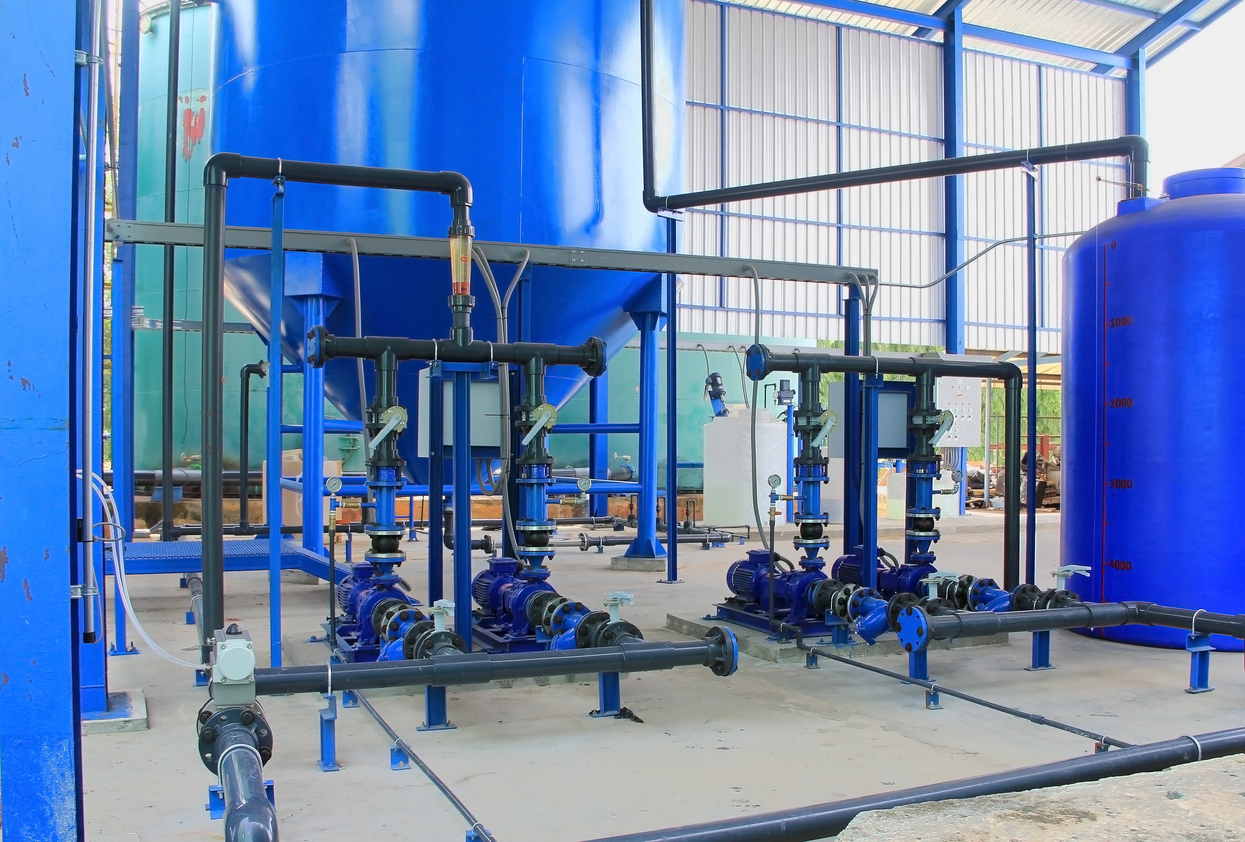How Does a Commercial RO Plant Work?
The core technology behind Commercial RO plants involves a process called reverse osmosis. Here’s a simplified breakdown:
- Pre-Treatment: Water enters the plant and undergoes pre-treatment to remove large particles, sediments, and other impurities. This stage typically involves filters and chemical treatments to protect the RO membranes from damage.
- Reverse Osmosis Process: The pre-treated water is then forced through a semi-permeable membrane at high pressure. This membrane has tiny pores that allow water molecules to pass through while blocking contaminants such as salts, bacteria, and organic compounds.
- Post-Treatment: After passing through the RO membrane, the purified water may go through additional treatment stages. These could include mineral reconstitution to enhance taste and ensure that the water meets specific quality standards.
- Storage and Distribution: The purified water is then stored in tanks and distributed to the end users. The system also includes controls and monitoring equipment to ensure consistent water quality and system efficiency.

What is a Commercial RO Plant?
A commercial RO plant is a sophisticated water purification system designed to handle large volumes of water for various commercial applications. Unlike residential RO systems, which are typically intended for household use, commercial RO plants are engineered to meet the high demands of industries such as manufacturing, hospitality, food and beverage, pharmaceuticals, and more.
Benefits of Commercial RO Plants
- High Purity Levels: RO plants deliver water with exceptional purity, removing up to 99% of contaminants, including dissolved salts, chemicals, and microorganisms. This is particularly crucial in industries where water quality is strictly regulated.
- Cost-Effective: Though the initial investment in a commercial RO plant can be significant, it can lead to substantial long-term savings. By producing high-quality water in-house, businesses can reduce their dependence on expensive bottled water or external water suppliers.
- Versatility: Commercial RO systems can be tailored to meet the specific needs of various industries. For example, they can be configured to handle different volumes of water or to target specific contaminants depending on the application.
- Environmental Impact: By reducing the need for bottled water and its associated plastic waste, Industrial RO plants contribute to environmental sustainability. Additionally, they often incorporate energy-efficient technologies to minimize their ecological footprint.
- Regulatory Compliance: Many industries have strict water quality standards. A well-designed RO plant helps businesses meet these standards, ensuring compliance with health and safety regulations.
Considerations for Implementing a Commercial RO Plant
- Water Quality and Source: The quality of the incoming water supply will impact the RO plant’s efficiency and maintenance needs. Understanding the source water’s characteristics helps in designing an appropriate pre-treatment process.
- Capacity and Scalability: Assessing your business’s water needs is crucial. Commercial RO plants come in various sizes and capacities, so choose a system that can handle your current requirements while allowing for future expansion.
- Maintenance and Operation: Regular maintenance is essential to ensure the longevity and efficiency of the RO system. This includes cleaning and replacing filters and membranes. Additionally, having trained staff or a reliable service provider is vital for smooth operation.
- Cost Considerations: Beyond the initial investment, factor in operational costs such as energy consumption, maintenance, and potential repairs. A thorough cost-benefit analysis can help justify the investment and plan for long-term expenses.
- Regulatory Compliance: Ensure the Industrial RO plant meets local and industry-specific regulations. This includes adhering to safety standards and water quality requirements.
Conclusion
Commercial RO plants represent a powerful solution for businesses seeking high-quality, purified water. By understanding their functionality, benefits, and considerations, companies can make informed decisions about investing in these systems. Whether for improving product quality, ensuring regulatory compliance, or contributing to sustainability efforts, a commercial RO plant can be a valuable asset in the quest for clean and reliable water.
Best Commercial RO Plant Manufacturer in India
If you are looking looking for Commercial or Industrial RO Plant Manufacturer in India, look no further than TR Aqua Private Limited, We are a leading manufacturer and supplier of Commercial and Indutrial RO Plant in India.
For More Details, Please Contact us!
Website :- www.traqua.in
Contact No. :- +91–9971440474
Email :- traquapurifiers@gmail.com

Comments
Post a Comment